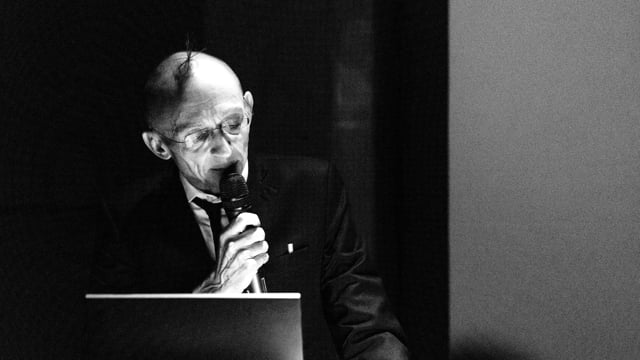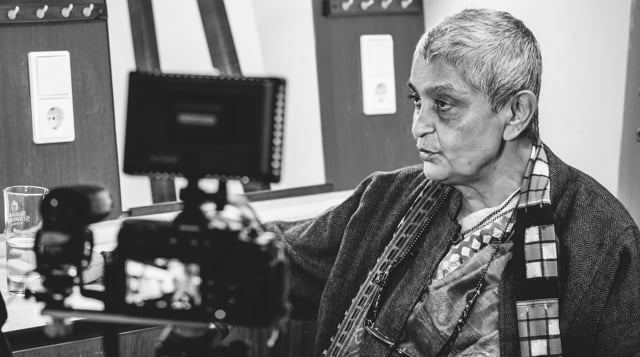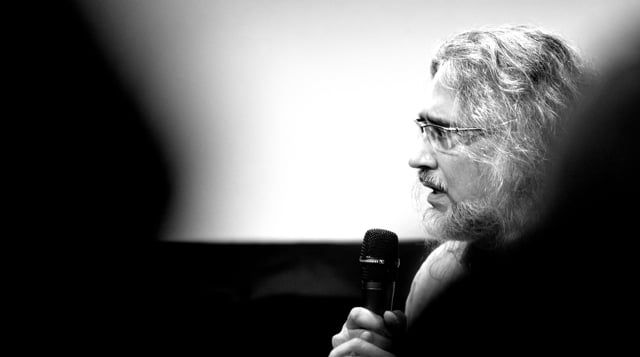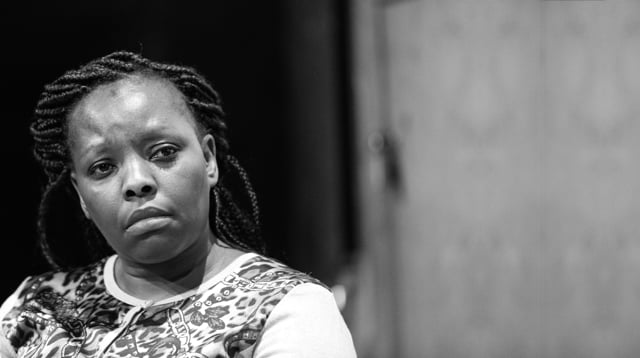Berliner Gazette Annual Conference 2016 | Workshops, Talks, Performances + Cooking | Volksbühne at Rosa-Luxemburg Platz | Berlin | 27-29/10

BORDERS ARE VIRTUALLY EVERYWHERE – WHAT IS IT TO RE-THINK MOVEMENT, TODAY?
People, data, goods, capital – everything is in motion in this period of turmoil. State borders are directing or redirecting all of this movement. Therefore, they determine whether social justice and alternative futures emerge – or not. What is it to make the power of state borders an issue of public scrutiny and debate? What is it to re-think movement, today? Berliner Gazette (BG) and Volksbühne at Rosa Luxemburg Platz invited researchers, activists, coders and journalists to search for answers. The BG Annual Conference, in 2016 entitled TACIT FUTURES, initiated fruitful discussions and collaborative processes among them. All documents are presented below: projects created at workshops, audios recorded at public talks and videos.
I. Documents
Welcome
At the TACIT FUTURES conference (October 27-29) the Berliner Gazette and Volksbühne at Rosa-Luxemburg Platz hosted 100 participants and 500 visitors, who over the course of three days explored the politics of social motion. Here, we present our findings in the form of projects, audios, videos and photos. At the bottom of this page you will find the conference program and additional info on the project.
Videos, Projects, Audios
We present the conference documents in three sections. First, the video section. It contains impressions from the three days and video interviews with conference guests. Second, the projects that emerged at the five workshops. They encompass crossmedia stories, position papers and experimental games. Third, the documents of the three public talks: audio recordings of the keynotes and discussions.
Photos
The photos featured in the documentation section of this page were taken during the TACIT FUTURES conference. More of them are available, capturing many of the event processes, including the performances, a collaborative cooking event and some of the lunch walks! We bundled them in a flickr album. Click on the following link to see all of them: http://bit.ly/2dKfBB3
II. Videos
Conference round up
Cassie Thornton (artist)
Marcus Staiger (anti-deportation activist)
SAZAE Bot performance on 29-10
Konrad Becker (net pioneer)
Gayatri Chakravorty Spivak (philosopher)
Brian Massumi (social thinker)
Jennifer Kamau (refugee activist)
III. Projects
Moving with Migrants

Millions of people are fleeing their homes. Their movement is being recorded like never before. Instead of using this expanding knowledge to paint a realistic picture of migration, mass media most of the time reproduces stereotypes only. In contrast to that, the workshop “Traces of Movement and the Question of Rights” worked with the first hand experience of migration by a young man, who fled his home in war torn Afghanistan. On the basis of his travel notes (text messages, videos and photos), the workshop group elaborated an intimate and complex story. Contextualizing this material also inspires reflection on the meaning of human rights. To read it, click this link: https://bit.ly/2Cso6Ni
Deciphering Borders

It has become common to say that, in an age of globalization, the movement of money is freed from the confines of borders, while the movements of human beings is more restrained than ever – especially for those human beings with little access to money. But what might this explanation leave out? What are the particularities of these movements? How does money transform borders, and how do borders transform money? And with what consequences for human beings in an age of compulsory and voluntary migration and movement? Searching for answers, the workshop “Politics of Borders and Money Moves” developed several projects. To check them out, click this link: http://bit.ly/2eCwjAf
Breaking Prediction

From web services like FourSquare or AirBnB to Pokemon Go, Flightaware or Facebook, digital technologies define and influence social mobility. Consider Google searches on travelling, going out, getting a taxi. It seems, every movement of a person’s life – citizens or illegalized migrants – feeds a big data machine that produces predictions for that person’s next moves. How can we circumvent the big data machine’s lure? How might we resist the benefits of its all-encompassing surveillance? How can we appropriate prediction for our own ends? The workshop “Industries of Prediction and the Margins of Freedom” came up with playful responses. To check them out, click this link: http://bit.ly/2fC0omg
Unboxing Infrastructure

The infrastructure of mobility is suspended between two extremes: drone war and care culture. Profiles of migrants, which are contained in black-boxed databases, can be used for a good cause, providing support and care. But also for acts of arbitrary police or state violence, or even serving the drone war. In order to visualize this disparity, the workshop “Drone War, Care Culture and Mass Mobility” created a StoryMap of the most frequented migratory routes of our times: Central Africa to Northern Europe. Workshop guests from Congo, Greece, Spain, Bosnia, and Germany provided stories and critical reflections. To check out the map, click this link: https://bit.ly/2RPEyRr
Revitalizing Politics

Who is entitled to human rights? Who is not? Who is acknowledged as a refugee? And if so, for how long and with what kinds of options for becoming a citizen? The movements of people fleeing from their homes in the Global South expose a political challenge. Notions of the nation state and democracy are at stake. By prompting such questions, migrants are potentially revitalizing politics as well as the notion of the political subject. Migration, especially its illegalized form, thus becomes a social movement. Against this backdrop the workshop “Co-working, Platform Activism and Refugees” developed a position paper. To read it, click this link: http://bit.ly/2fD6Mbp
IV. Audios
Challenging Power

The future of movement and the movement of the future are both meant to reach a state of total control through computation and pre-emption, without ever having been debated within society. The idea is to declare war on everything that potentially could happen. Also known as the War on Terror, this politics operates on the level of the virtual. How does this development transform movement-based power? Brian Massumi, Konrad Becker and Anna Sauerbrey tried to tackle this question. To listen to their talk, click play below.
Click on the button to load the content from Soundcloud.
Resisting Mobility

The promises of social motion turn into threats when they become indistinguishable from the ideology of capitalism and the history of colonialism. That is, when mobility becomes an obligation, whose conditions and rules are defined by oppressive forces. Which subjectivities, languages or pre-histories are neglected? What about people, who actually do not want to move? Gayatri Chakravorty Spivak and Guillaume Paoli tackled these questions after an intervention by Harsha Walia. To listen to their talk, click play below.
Click on the button to load the content from Soundcloud.
Empowering Migrants

Migrants live often under harsh and terribly precarious conditions. Moreover, they are systematically invisibilized in mass media and pressured into silence – threatened to suffer even more dispossession, e.g. deportation, if they dare to articulate disobedience. Therefore, empowering migrants becomes an urgent task. Refugee thinker and activist Jennifer Kamau, Rojava fighter Meike Nack and anti-deportation activist Marcus Staiger discussed about this as a democratic challenge. To listen to their talk, click the play below.
Click on the button to load the content from Soundcloud.
V. Conference Program
27-10 | 8 p.m.: WHO CONTROLS MOVEMENT?

Humans and goods, data and money – everything is in motion. Today, all this movement is crucial to strategies of survival and emancipation as well as for politics of expansionism and profit. In this Public Talk the TACIT FUTURES conference will explore the big picture of movement in dialogue with Brian Massumi and Konrad Becker, asking questions like: How are different types of movement inter-related? How are different actors exploiting, navigating and emancipating movement? As a philosopher and media theoretician Brian Massumi has contributed to this field from a variety of angles over a great period of time, dating back to the early 1990s, when he edited the book “The Politics of Everyday Fear”. Here Massumi’s investigations of fear-driven societies began gesturing towards a “politics of affect”, analyzing also capacities and mechanisms to be moved by and with as well as to move others. In his most recent opus magnum “Ontopower” (Duke, 2015) Massumi shifts the focus ever sharper towards questions of power and in that sense towards the conditions and politics for any movement to take place. A preliminary study of this major philosophical work has been published in German under the title “Ontomacht” (Merve, 2010). This TACIT FUTURES talk will be opened with a lecture performance by Konrad Becker (photo above), who is a pionieer in the field of digital networks. Becker’s work as a sound artist, activist, researcher and author dates back to the late 1970s, leading him to explore the transformation of network cultures with regard to their political and emancipatory potential. In his audio-visual input statement Becker will focus on big-data-driven prediction industries and their rampant colonization of movements as well as futures. As a warm up the journalist and curator Krystian Woznicki presents photos taken in the past 20 years on four continents. His slideshow invites to rediscover mental and physical movements in urban environments by focusing on apparatuses and architectures for watching. The journalist Anna Sauerbrey will moderate this session.
28-10 | 8 p.m.: WHO CLAIMS BORDERLESSNESS?

Is global capital borderless? Can we think borders before and beyond the play of capital? In this Public Talk the TACIT FUTURES conference will explore these questions with Gayatri Chakravorty Spivak (photo above). The philosopher will touch gender, the world, the globe; and she will attempt to look at the word “planet,” in the gravity of its many imperatives in space and time. Considered one of the most influential postcolonial intellectuals, Spivak is best known for her essay “Can the Subaltern Speak?,” which, already in 1985, offers a strong critique of her own tradition – Hindu patriarchy – and shows its complicity with British-inspired reformism. This is one of the reasons why Spivak’s work has become an important source of inspiration for resistance movements and social struggles around the world. In 2012, Spivak was awarded the Kyoto Prize in Arts and Philosophy for being “a critical theorist and educator speaking for the humanities against intellectual colonialism in relation to the globalized world.” In 2013, she received the Padma Bhushan, the third highest civilian award given by the Republic of India. Books available also in German are “Can the Subaltern Speak?” (Turia + Kant, 2007), “Righting Wrongs” (Diaphanes, 2008), “Imperatives to Re-Imagine the Planet” (Passagen, 2013). Moderated by Guillaume Paoli, this TACIT FUTURES talk tries to account for Spivak’s influence in a variety of ways, last but not least by looking at the potential of her ideas as one yet to unfold, e.g. by exploring the links between Spivak’s critical engagement and the work of the diverse actors whom the BG project assembles around the hybrid issues of movement control. The talk will be opened with an intervention by Harsha Walia from No One Is Illegal Vancouver. In a warm up a performance the choreographer and dancer Tamar Grosz explores movement control as an emancipatory endeavour by reflecting her own migration experience: being born in Chile, growing up and studying in Israel, living and working in Germany today.
29-10 | 4 p.m.: WHO SHAPES FUTURES?

The time has come to explore the worlds of groups, who suffer from war, disasters and all kinds of other crisis. And to acknowledge that they are not just victims, but also subjects with agency, who cultivate survival strategies and solidarity networks that foster seminal innovations for the entire planet. So, what holds us back to account for them as the innovators of our civil societies, as pioneers of a new era of peer cooperativism and as early adopters of the commons as a new way of organising ownership? – bottom-up and collective, rather than state-run or private. Can we learn to see ‘their’ invisiblized survival economies as exemplary struggles for equality? And what could be the lessons regarding efforts towards commoning housing, labor, health care and all the raw materials of life? Moderated by Marcus Staiger (Bündnis für bedingungsloses Bleiberecht), this TACIT FUTURES talk will guide through fields of social and political experimentation exercised by contemporary refugee movements. Leading protagnonists such as Jennifer Kamau (International Women’s Space) and Meike Nack (Foundation Free Woman in Rojava) will present their struggles. They will take the Federation of Northern Syria – Rojava as a starting point. A de facto autonomous region originating in three self-governing cantons in northern Syria, the Rojavan government and society are based on principles of direct democracy, gender equality, sustainability and polyethnicity. In a warm up a performance the anonymous collective Sazaebot reflects Rojava as an utopian state for the 21st century, by blending Haiku poetry with global social network codes. After this panel, a closing event invites you to join the collaborative experiment “Nowhere Kitchen” with artist, choreographer and cook Pepe Dayaw. You are invited to bring your own food – leftovers, cooked or uncooked. We will transform it into something extraordinary! Bring your leftovers and join cooking at 6 p.m. Dining will start at 7 p.m.
VI. Workshops
Explore movement
Artists, researchers, activists and programmers from more than twenty countries will gather at the TACIT FUTURES conference in order to collectively and collaboratively develop visions for the democratic control of movement in the context of workshops that will take place at Volksbühne at Rosa-Luxemburg-Platz in Berlin. The five workshop tracks are entitled: “Industries of prediction and margins of freedom”, “The politics of borders and money moves”, “Traces of movement and the question of rights”, “Care culture, drone war and mass mobility” and “Co-working, platform activism and refugees”. Scroll down for more info or download a PDF version of the workshop program here.
Collaborate on resources
The workshop groups will encompass approximately 15 people, partly invited by the conference organizers, partly registered via the open call. Moderated by experienced facilitators, all workshop groups are invited to work on collaborative resources dedicated to the respective track theme. The results will be made available as online resources via berlinergazette.de. They can include position papers, multimedia storytelling projects and collections of ideas. Check the workshop results from the last annual conferences. They are presented in the section PROJECTS on this website and in the section INITIATING BEGINNINGS on this website. Photos from workshops at the BG annual conference 2015 please find here.
Join and register
The open call for the workshops targets (upcoming) hackers, journalists, activists and researchers. A limited number of participants was able to register by contacting the following E-mail: info@berlinergazette.de. Deadline was October 4. Please note: The five workshops will be running in parallel fashion, hence everybody is invited to commit to one single track. On October 27 and 28 the workshops will take place from 10 a.m. to 6 p.m., on October 29, when the results are presented, from 10 a.m. to 12 a.m. The conference hosts will provide catering throughout the entire conference, including warm lunch. A series of guided city walks is planned for lunch breaks!
Industries of prediction and margins of freedom

The future is objectively unpredictable. Anything can happen any time: natural disasters, bird flus, terror attacks, economic crises, etc. Nevertheless industries of prediction are rising, fueled by big-data-driven technologies and ideologies. Although practices of prediction have been around since the 8th–7th century BC, their global monopolization by corporations and governments entails a far reaching paradigm change. Last but not least it is changing the margins of freedom to collectively plan or create the future, that are also the margins of freedom to collectively embark upon movement – in material and immaterial realms alike. The workshop explores the margins of freedom in the age of prediction by focusing on the impact of big-data-driven technologies in people’s daily lives, e.g. through services of algorithmic recommendation.
Moderation: Lilian Masuhr (activist, Berliner Gazette, Berlin, Germany), Michael Prinzinger (activist/coder, Berliner Gazette, Berlin, Germany). Guests: Junichi Akagawa (founder, Mirrativ, Tokyo, Japan), Alina Floroi (founder, Laborazon, Bucharest, Romania), Yuka Fukuura (researcher, Hokkaido University, Sapporo, Japan), Nina Hälker (researcher, HafenCity University, Hamburg, Germany), Riho Higashida (correspondent, Berliner Gazette, Tokyo, Japan), Nakano Hitoyo (artist, Sazae Bot, Tokyo, Japan), Cory Levinson (data analyst, SoundCloud, Berlin, Germany), André Rebentisch (founder, meshcon.net, Berlin, Germany), Juliane Rettschlag (student, Berlin Institute of Technology, Berlin, Germany), Andreas Schneider (director, Institute for Information Design Japan, Tokyo, Japan), Koji Takahashi (editor, uploadmag.org, Tokyo, Japan), Cassie Thornton (artist, Feminist Economics Department, San Francisco, USA), Stefan Tiron (artist, Bucharest, Romania), Niloufar Vadiati (researcher, HafenCity University, Hamburg, Germany), Beata Wilczek (artist, ESMOD, Berlin Germany).
The politics of borders and money moves

It has become increasingly difficult to imagine a world beyond contemporary conditions. This crisis of imagination can be seen as a result of the uncontested globalisation of free market capitalism since the demise of socialism. The present level of integration of global geography into the contemporary production and distribution chains is unique in human history. On the one hand this integration is being enabled by the revolution in logistics. On the other hand it is enabled by the mobility of capital, which in the deregulated space of legal and shadow finance, is able to circumvent regulatory frameworks. Taking disclosures such as the Panama Papers as a point of departure, this workshop investigates money moves and the seeming borderlessness of capital.
Moderation: Max Haiven (sociologist/activist, Radical Imagination Project, Halifax, Canada) Nina Pohler (sociologist, Hafen City University, Hamburg, Germany) Guests: Brigitte Alfter (director, Investigative Journalism Fund, Copenhagen, Denmark), Anja Breljak (researcher, TU Dresden, Dresden, Germany), Stefan Candea (coordinator, European Investigative Collaborations, Leipzig, Germany), Annabel Church (data-journalist, Influence Mappers, Berlin, Germany) tbc, Martin A. Ciesielski (coach, medienmosaik, Berlin, Germany), Gerko Egert (researcher, Free University Berlin, Berlin), Kristoffer Gansing (director, transmediale, Berlin, Germany), Adriana Homolova (data journalist, Onderzoeksredactie, Amsterdam, Netherlands), Matthew Linares (coder, openDemocracy, London, UK), Andrea Liu (director, Counterhegemony, New York, USA), Sebastian Mondial (data-journalist, Offshore Leaks, Hamburg, Germany), Silke Ötsch (researcher, Attac, Innsbruck, Austria), Markus Perschon (media activist, Der Wandel, Vienna, Austria), Anouk Ruhaak (coder + journalist, Platform Investico, Berlin, Germany), Brett Scott (finance hacker, “The Heretic’s Guide to Global Finance”, London, UK).
Traces of movement and the question of rights

Today, the movement of people, goods, money and data is inseparable. Meanwhile any kind of movement is leaving an unprecedented amount of traces. This byproduct changes the very nature of movement because potential knowledge can be generated from the rising mountains of trace data (and data traces alike). For instance it could be knowledge about a world that is in perpetual motion. It also could be knowledge that can contribute to optimize movement or to hinder its unfolding. Does this affect people’s freedoms and social justice in general? Can the expanding knowledge about movement help to construct more robust human rights and citizen rights? This workshop focuses on such questions by reflecting various security practises (e.g. surveillance, predictive policing) as a response to seemingly uncontrollable movements of people, especially underclass migrants and refugees.
Moderation: Claudia Núñez (journalist, MigraHack, Los Angeles, USA), Cristina Pombo (journalist, Expresso, Lisbon, Portugal). Guests: Susanne Braun (journalist, Textblueten, Düsseldorf, Germany), Harlo Holmes (coder/activist, Freedom of the Press Foundation, New York, USA), Jérôme Hourdeaux (journalist, Mediapart.fr, Paris, France), Inga Lindarenka (editor, MagNet, Minsk, Belarus), Monisha Caroline Martins (journalist/activist, monishamartins.com, Berlin, Germany), Katerina Michailidi (editor, BookSprints, Berlin, Germany), Jordan Schneider (software engineer, Apple, San Francisco, USA), Shireen Soofi (activist, No One Is Illegal, Vancouver, Canada), Catherine Sotirakou (Journalist, Alpha TV, Athens, Greece), Perla Trevizo (journalist, Coda Story, New York, USA).
Care culture, drone war and mass mobility

Refugees require survival tips and a welcoming guide through the new city e.g. to find available kindergartens. In addition to brute information a culture of care is badly needed (mentors, translators, etc.). Meanwhile information services rely on backbone cabling – a black box infrastructure that is also processing data for the drone war. What kind of civil care cultures need to be fostered? What kind of civil disobedience or even militant activity against infrastructure involved in human rights abuses is justified, legitimate and possible? The workshop initiates a quest for answers.
Moderation: Jaron Rowan (activist, Xnet, Barcelona, Spain), Abiol Lual Deng (human rights activist, Université de Paris-Sorbonne, Paris, France). Guests: Jutta Lauth Bacas (researcher/co-founder, Mediterraneanist Network of EASA, Athens, Greece), Jeff Deutch (researcher/activist, Centre for Internet & Human Rights, Berlin, Germany), Daphne Dragona (curator, Furtherfield, Athens/Berlin, Greece/Germany), Hozan Ibrahim (activist, citizensforsyria.org, Berlin, Germany), Katrin M. Kämpf (researcher, University Paderborn, Paderborn, Germany), Evan Light (researcher/activist, Snowden Archive-in-a-Box, Toronto, Canada), Morana Miljanovic (researcher/activist, Centre for Internet & Human Rights, Berlin, Germany), Annette Mühlberg (activist, verdi, Berlin, Germany), Marta Peirano (Culture & Technology editor, eldiario.es, Madrid, Spain), Valentina Pellizzer (executive director, One World, Sarajevo, Bosnia), Christina Rogers (researcher, TU Dresden, Dresden, Germany), Flavia Röhrs (coordinator, Volkshochschule, Berlin, Germany), Florian Sprenger (media theoretician, Goethe University, Frankfurt, Germany).
Co-working, platform activism and refugees

New platforms must be built in order to enable seminal types of cooperation and alliances among civil society actors, allowing refugees and others alike to become co-workers. Such platforms (and the type of cooperation they catalyze) are needed for organizing mobility, care work and resistance to border regimes. What role do refugees and underprivileged actors in general play in this scenario? How can emancipatory roles actually be realized? The workshop brings together “welcoming citizens”, activists and platform initiators.
Moderation: Ela Kagel (curator, Supermarkt, Berlin, Germany), Christopher Senf (researcher, Berliner Gazette, Berlin, Germany). Guests: Arwa Alladin (computer scientist, Refugee Academy, Berlin, Germany), Rosemary Bechler (editor, openDemocracy, London, UK), Ahmad Denno (founder, Eed Be Eed, Berlin, Germany), Andrea Behnke (activist, diem25/DSC, Hamburg, Germany) tbc, Sabrina Dittus (director, pepperlint film, Berlin, Germany), Corinna Haas (librarian, ICI Library, Berlin, Germany), Friederike Habermann (economist/historian, p2p Foundation, Berlin, Germany), Tabea Grzeszyk (founder, hostwriter.org, Berlin, Germany), Bernd Hatesuer (activist, TEPP, Berlin, Germany), Diana El Jeiroudi (filmmaker, dox-box.org, Berlin, Germany), Ahmad Lababibi (student, University of Damascus, Berlin, Germany), Sandra Mamitzsch (programme director, re:publica, Berlin, Germany), Julia Molin (researcher, Humboldt University, Berlin, Germany), Sarah Mousavi (historian/activist, Kommste spieln/NUK Wiecherstraße, Berlin, Germany), Martina Staneva (coordinator, Pavilion 19, Sofia, Bulgaria), Elena Veljanovska (curator, Kontrapunkt, Skopje, Macedonia), Harsha Walia (activist, No One Is Illegal, Vancouver, Canada).
.
VII. Information








